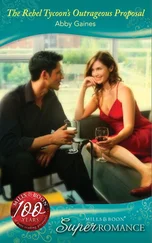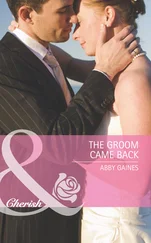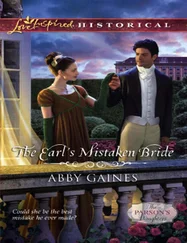
IT WAS an idyllic day for a garden party. The sky was a deep blue; sparkling sunshine flooded the Valley; a cooling breeze lowered the spring into summer heat. A veritable explosion of flowering trees and foaming blossom had turned the rich rural area into one breathtakingly beautiful garden that leapt at the eye and caught at the throat. It was so perfect a world the inhabitants of Silver Valley felt privileged to live in it.
Only Charlotte Prescott, a widow at twenty-six, with a seven-year-old child, stood in front of the bank of mirrors in her dressing room, staring blindly at her own reflection. The end of an era had finally arrived, but there was no joy in it for her, for her father, or for Christopher, her clever, thoughtful child. They were the dispossessed, and nothing in the world could soothe the pain of loss.
For the past month, since the invitations had begun to arrive, Silver Valley had been eagerly anticipating the Open Day: a get-to-know-you garden party to be held in the grounds of the grandest colonial mansion in the valley, Riverbend. Such a lovely name, Riverbend! A private house, its grandeur reflected the wealth and community standing of the man who had built it in the 1880s, Charles Randall Marsdon, a young man of means who had migrated from England to a country that didn’t have a splendid past, like his homeland, but in his opinion had a glowing future. He’d meant to be part of that future. He’d meant to get to the top!
There might have been a certain amount of bravado in that young man’s goal, but Charles Marsdon had turned out not only to be a visionary, but a hard-headed businessman who had moved to the highest echelons of colonial life with enviable speed.
Riverbend was a wonderfully romantic two-storey mansion, with a fine Georgian façade and soaring white columns, its classic architecture adapted to climatic needs with large-scale open-arched verandahs providing deep shading for the house. It had been in the Marsdon family— her family—for six generations, but sadly it would never pass to her adored son. For the simple reason that Riverbend was no longer theirs. The mansion, its surrounding vineyards and olive groves, badly neglected since the Tragedy, had been sold to a company called Vortex. Little was known about Vortex, except that it had met the stiff price her father had put on the estate. Not that he could have afforded to take a lofty attitude. Marsdon money had all but run out. But Vivian Marsdon was an immensely proud man who never for a moment underestimated his important position in the Valley. It was everything to him to keep face. In any event, the asking price, exorbitantly high, had been paid swiftly—and oddly enough without a single quibble.
Now, months later, the CEO of the company was finally coming to town. Naturally she and her father had been invited, although neither of them had met any Vortex representative. The sale had been handled to her father’s satisfaction by their family solicitors, Dunnett & Banfield. Part of the deal was that her father was to have tenure of the Lodge—originally an old coach house—during his lifetime, after which it would be returned to the estate. The coach house had been converted and greatly enlarged by her grandfather into a beautiful and comfortable guest house that had enjoyed a good deal of use in the old days, when her grandparents had entertained on a grand scale, and it was at the Lodge they were living now. Just the three of them: father, daughter, grandson.
Her former in-laws—Martyn’s parents and his sister Nicole—barely acknowledged them these days. The estrangement had become entrenched in the eighteen months since Martyn’s death. Her husband, three years older than she, had been killed when he’d lost control of his high-powered sports car on a notorious black spot in the Valley and smashed into a tree. A young woman had been with him. Mercifully she’d been thrown clear of the car, suffering only minor injuries. It had later transpired she had been Martyn’s mistress for close on six months. Of course Martyn hadn’t been getting what he’d needed at home. If Charlotte had been a loving wife the tragedy would never have happened. The second major tragedy in her lifetime. It seemed very much as if Charlotte Prescott was a jinx.
Poor old you! Charlotte spoke silently to her image. What a mess you’ve made of your life!
She really didn’t need anyone to tell her that. The irony was that her father had made just as much a mess of his own life—even before the Tragedy. The first tragedy. The only one that mattered to her parents. Her father had had little time for Martyn, yet he himself was a man without insight into his own limitations. Perhaps the defining one was unloading responsibility. Vivian Marsdon was constitutionally incapable of accepting the blame for anything. Anything that went wrong was always someone else’s fault, or due to some circumstance beyond his control. The start of the Marsdon freefall from grace had begun when her highly respected grandfather, Sir Richard Marsdon, had died. His only son and heir had not been able to pick up the reins. It was as simple as that. The theory of three. One man made the money, the next enlarged on it, the third lost it. No better cushion than piles of money. Not every generation produced an heir with the Midas touch, let alone the necessary drive to manage and significantly enlarge the family fortune.
Her father, born to wealth and prestige, lacked Sir Richard’s strong character as well as his formidable business brain. Marsdon money had begun to disappear early, like water down a drain. Failed pie-in-the-sky schemes had been approached with enthusiasm. Her father had turned a deaf ear to cautioning counsel from accountants and solicitors alike. He knew best. Sadly, his lack of judgement had put a discernible dent in the family fortunes. And that was even before the Tragedy that had blighted their family life.
With a sigh of regret, Charlotte picked up her lovely hat with its wide floppy brim, settling it on her head. She rarely wore her long hair loose these days, preferring to pull it back from her face and arrange it in various knots. In any case, the straw picture hat demanded she pull her hair back off her face. Her dress was Hermes silk, in chartreuse, strapless except for a wide silk band over one shoulder that flowed down the bodice and short skirt. The hat was a perfect colour match, adorned with organdie peonies in masterly deep pinks that complemented the unique shade of golden lime-green.
The outfit wasn’t new, but she had only worn it once, at Melbourne Cup day when Martyn was alive. Martyn had taken great pride in how she looked. She’d always had to look her best. In those days she had been every inch a fashionista, such had been their extravagant and, it had to be said, empty lifestyle. Martyn had been a man much like her father—an inheritor of wealth who could do what he liked, when he liked, if he so chose. Martyn had made his choice. He had always expected to marry her, right from childhood, bringing about the union of two long-established rural families. And once he’d had her—he had always been mad about her—he had set about making their lifestyle a whirl of pleasure up until his untimely death.
From time to time she had consoled herself with the thought that perhaps Martyn, as he matured, would cease taking up endless defensive positions against his highly effective father, Gordon, come to recognise his family responsibilities and then pursue them with some skill and determination.
Читать дальше













